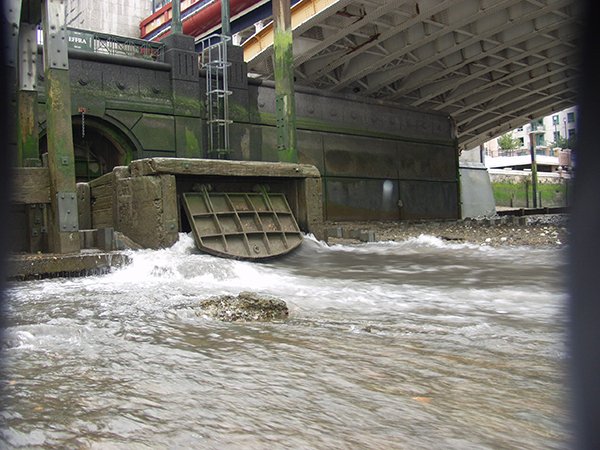Steve Howells, head of HSSE at Thames Tideway Tunnel explains why health is so beneficial to the organisation.

Last September, the government granted a Development Consent Order (DCO), giving the green light for construction of the Thames Tideway Tunnel – a 25km long ‘super sewer’ from west to east London that will help tackle sewage pollution in the River Thames.
London’s sewerage system was designed by Sir Joseph Bazalgette in the 1860s, for a population of four million people. While the Victorian sewers are still in excellent condition, they now lack the capacity to meet the demands of London’s growing population. Even just a small amount of rain can cause sewage to overflow into the Thames from Combined Sewage Overflow (CSO) discharge points along the River Thames – amounting to around 39 million tonnes in a typical year.
The project has been split geographically into three main construction works contracts, – Central, East and West. Preferred bidders for the main works contracts were announced in February, and contracts are due to be awarded in the summer. There is also a procurement process underway seeking investors to finance the Infrastructure Provider (IP), an independent company which will be responsible for building and maintaining the tunnel. Main work is due to start in 2016, with the aim of completion by 2023.
Here at Thames Tideway Tunnel we know that improving employee health has as much benefit to the organisation as it does the employee; after all our people remain our best asset. The vision for health is therefore clear.
First of all we take our responsibility to protect the health and wellbeing of all employees very seriously. No one should ever be made ill in the building of our tunnel. To this end, potential hazards to health encountered in the work setting must be effectively and systematically managed to the highest level of control using appropriate expertise and innovative solutions. Indeed this philosophy extends to the communities within which we are working.
We will simply not accept any significant risk to health being imposed by a work activity or workplace exposure despite working in an industry sector that often accepts significant health risk exposure as the ‘norm’. For this reason we deal with health risk exposures using a quantified risk based approach, ensuring wherever possible that risks to health are designed and engineered out. To support this, we encourage our design teams to have embedded industrial hygienists, OH professionals and ergonomists to support this. Where health risks cannot be designed or engineered out the highest level of risk control is always applied routinely, again with the support of industrial hygienists, OH professionals and ergonomists.
Similarly we always seek to ensure all employees are always physically and mentally prepared and equipped for all tasks requested of them, particularly where safety critical activities are undertaken. To this end, again through careful risk mapping, we will understand the risks and capabilities required by each discipline and the support, both physical and psychological, required to achieve work demands in a successful but equally rewarding manner.
Thames Tideway Tunnel is committed to creating a working environment that promotes individual health and wellbeing, giving everyone opportunity to address organisational and individual health risk factors and create a positive health legacy. Health legacy that will exist long after we have built London’s newest tunnel. By helping employees attack and remove lifestyle related health deficits, we can develop not only a workforce that is fit for work/less susceptible to occupational disease, but employees that are better equipped to live a healthy productive life with their families and loved ones long after the Thames Tideway tunnel is commissioned.
Our vision for health is delivered collaboratively, not only through specialists in the HSSE function, but by active participation of the employee group, our wider professional networks, through research and evidence based practice, in partnership with communities and working groups who understand how health underpins who we are, how we do things and what we leave behind.
 Steve Howells is the Head of HSSE at Thames Tideway Tunnel. Steve has previously been the Head of HSE at Heathrow Airports Ltd and Caterpillar Engines Division.
Steve Howells is the Head of HSSE at Thames Tideway Tunnel. Steve has previously been the Head of HSE at Heathrow Airports Ltd and Caterpillar Engines Division.
Steve will be speaking at the IOSH conference on 17 June at 12.10pm.
Thames Tideway Tunnel has aspirations of delivery of a Transformational HSSE performance based around their Triple Zero philosophy – zero incidents, zero harm, zero compromise. They are basing their programme on the delivery of Seven Key Aims – Leadership, Competence, Health and Well-Being, Engagement, Communication, Performance Improvement and Safe Workplace. Steve will talk about the concepts that have been developed to drive improvement through these aims in a series of blogs for SHPonline.
What makes us susceptible to burnout?
In this episode of the Safety & Health Podcast, ‘Burnout, stress and being human’, Heather Beach is joined by Stacy Thomson to discuss burnout, perfectionism and how to deal with burnout as an individual, as management and as an organisation.
We provide an insight on how to tackle burnout and why mental health is such a taboo subject, particularly in the workplace.



